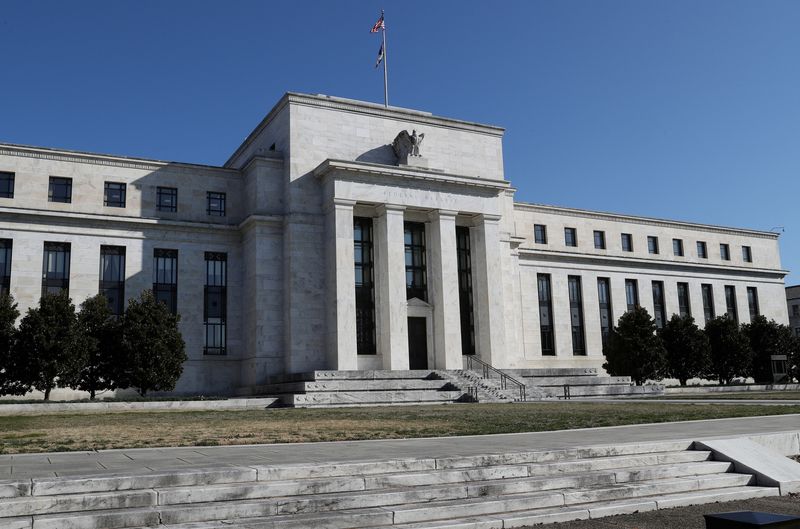By Pete Schroeder
WASHINGTON (Reuters) - The U.S. Federal Reserve will release the results of its annual bank health checks on Thursday. Under the "stress test" exercise established following the 2007-2009 financial crisis, the Fed tests banks' balance sheets against a hypothetical severe economic downturn, the elements of which change annually.
The results dictate how much capital banks need to be healthy and how much they can return to shareholders via share buybacks and dividends.
How well a bank performs dictates the size of its "stress capital buffer" - an extra cushion of capital the Fed requires to weather the hypothetical downturn, on top of regulatory minimums required to support daily business. The larger the losses under the test, the larger the buffer.
Here are the highlights of this year's tests:
THE ROLLOUT
The Fed is expected to release the results after market close on Thursday. Rather than passing or failing lenders, it typically publishes each bank's capital ratios and aggregate losses under the test, with details on how their specific portfolios - like credit cards or mortgages - fared.
Banks are not allowed, however, to announce their plans for dividends and buybacks until the following Monday, June 27.
The country's largest lenders, particularly JPMorgan Chase & Co (NYSE:JPM), Citigroup Inc (NYSE:C), Wells Fargo (NYSE:WFC) & Co, Bank of America Corp (NYSE:BAC)., Goldman Sachs Group Inc (NYSE:GS) and Morgan Stanley (NYSE:MS) are closely-watched by the markets.
A TOUGHER TEST?
The Fed changes the scenarios each year. They take months to devise, which means they risk becoming outdated. In 2020, for example, the real economic crash caused by the COVID-19 pandemic was by many measures more severe than the Fed's scenario that year.
The Fed devised this year's scenario before Russia's invasion of Ukraine and the current hyper-inflationary outlook.
Still, the 2022 test is expected to be more difficult than last year because the actual economic baseline is healthier. That means spikes in unemployment and drops in the size of the economy under the test are felt more acutely.
For example, the 2021 stress test envisioned a 4 percentage point jump in unemployment under a "severely adverse" scenario. In 2022, that increase is 5.75 percentage points, thanks largely to rising employment over the past year.
As a result, analysts expect banks will be told to set aside slightly more capital than in 2021 to account for expected growth in modeled losses.
STRESSES IN COMMERCIAL REAL ESTATE, CORPORATE DEBT
This year's tests will also include "heightened stress" in commercial real estate, which was hit by the pandemic as workers were sent home, and corporate debt markets. Global watchdogs, including the International Monetary Fund, have warned of high levels of risky corporate debt as interest rates rise globally.
ALL BANKS TESTED
In 2022, all 34 U.S. banks monitored by the Fed with over $100 billion in assets will undergo the stress test, compared with 23 lenders last year.
That's because the Fed adopted a new standard in 2020 that stipulated that banks with less than $250 billion in assets only have to take the test every other year. That means that large regional banks, like Ally Financial (NYSE:ALLY) Inc and Fifth Third Bancorp (NASDAQ:FITB) are up again after a year off.
